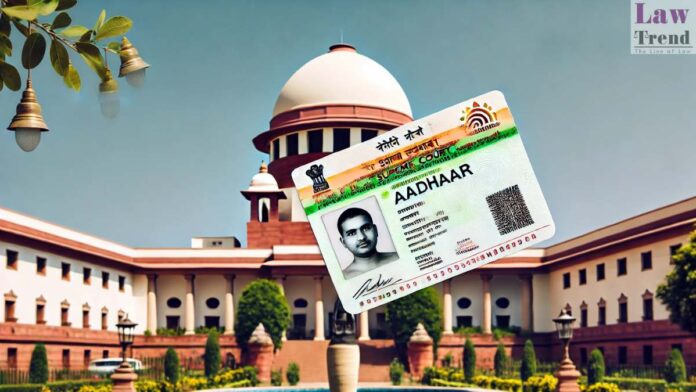In a significant ruling impacting compensation claims under motor accident laws, the Supreme Court of India, led by Justice Sanjay Karol and Justice Ujjal Bhuyan, emphasized that the School Leaving Certificate should be regarded as the authoritative document for determining the age of a deceased claimant, superseding the Aadhaar Card. In the case of Saroj
To Read More Please Subscribe to VIP Membership for Unlimited Access to All the Articles, Download Available Copies of Judgments/Order, Acess to Central/State Bare Acts, Advertisement Free Content, Access to More than 4000 Legal Drafts( Readymade Editable Formats of Suits, Petitions, Writs, Legal Notices, Divorce Petitions, 138 Notices, Bail Applications etc.) in Hindi and English.




